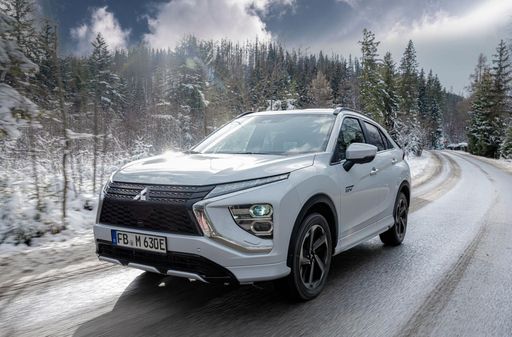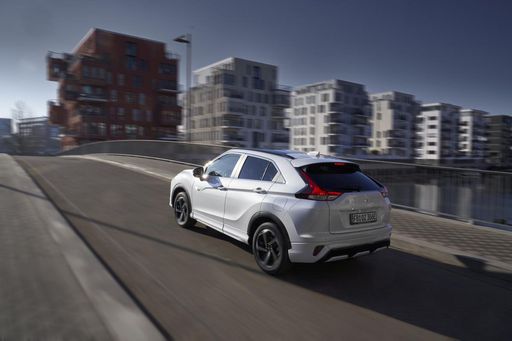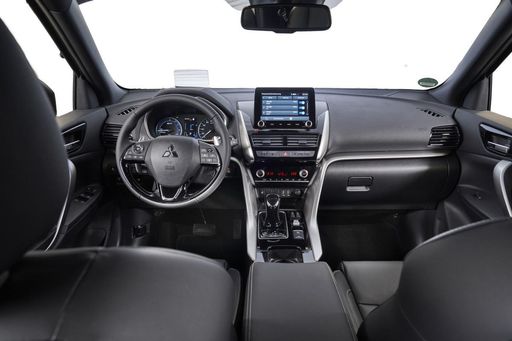Hyundai Tucson vs Mitsubishi Eclipse Cross - Differences and prices compared
Compare performance (288 HP vs 218 HP), boot space and price (20900 £ vs 41100 £ ) at a glance. Find out which car is the better choice for you – Hyundai Tucson or Mitsubishi Eclipse Cross?
Costs and Efficiency:
Looking at overall running costs, both models reveal some interesting differences in everyday economy.
Hyundai Tucson has a convincingly advantage in terms of price – it starts at 20900 £ , while the Mitsubishi Eclipse Cross costs 41100 £ . That’s a price difference of around 20237 £.
As for electric range, the Mitsubishi Eclipse Cross performs decisively better – achieving up to 635 km, about 565 km more than the Hyundai Tucson.
Engine and Performance:
Power, torque and acceleration are the classic benchmarks for car enthusiasts – and here, some clear differences start to show.
When it comes to engine power, the Hyundai Tucson has a evident edge – offering 288 HP compared to 218 HP. That’s roughly 70 HP more horsepower.
In acceleration from 0 to 100 km/h, the Hyundai Tucson is minimal quicker – completing the sprint in 7.50 s, while the Mitsubishi Eclipse Cross takes 7.90 s. That’s about 0.40 s faster.
In terms of top speed, the Hyundai Tucson performs a bit better – reaching 204 km/h, while the Mitsubishi Eclipse Cross tops out at 170 km/h. The difference is around 34 km/h.
There’s also a difference in torque: Hyundai Tucson pulls clearly perceptible stronger with 379 Nm compared to 300 Nm. That’s about 79 Nm difference.
Space and Everyday Use:
Cabin size, boot volume and payload all play a role in everyday practicality. Here, comfort and flexibility make the difference.
Both vehicles offer seating for 5 people.
In terms of boot space, the Hyundai Tucson offers distinct more room – 620 L compared to 487 L. That’s a difference of about 133 L.
In maximum load capacity, the Hyundai Tucson performs minimal better – up to 1799 L, which is about 129 L more than the Mitsubishi Eclipse Cross.
Who wins the race in the data check?
The Hyundai Tucson holds a narrow overall lead in the objective data comparison.
This result only shows which model scores more points on paper – not which of the two cars feels right for you.
Costs and Consumption
View detailed analysis
Engine and Performance
View detailed analysis
Dimensions and Body
View detailed analysis

Hyundai Tucson
Hyundai Tucson
Hyundai Tucson marries bold, sculpted looks with a clever, roomy cabin that feels smarter than its price tag suggests. It's composed on the road, easy to live with day-to-day, and a sensible choice for buyers who want SUV style without the showroom theatrics.
details




Mitsubishi Eclipse Cross
Mitsubishi Eclipse Cross combines coupe-like looks with crossover practicality, so you get style without the showroom attitude. It’s an affable daily driver that hides a few quirks behind a confident grin, making it an easy pick for buyers who want personality without fuss.
details


Costs and Consumption |
|
|---|---|
|
Price
20900 - 47900 £
|
Price
41100 - 48200 £
|
|
Consumption L/100km
2.7 - 7.6 L
|
Consumption L/100km
-
|
|
Consumption kWh/100km
-
|
Consumption kWh/100km
16.7 - 16.9 kWh
|
|
Electric Range
63 - 70 km
|
Electric Range
635 km
|
|
Battery Capacity
-
|
Battery Capacity
-
|
|
co2
62 - 172 g/km
|
co2
0 g/km
|
|
Fuel tank capacity
52 - 54 L
|
Fuel tank capacity
-
|
Dimensions and Body |
|
|---|---|
|
Body Type
SUV
|
Body Type
SUV
|
|
Seats
5
|
Seats
5
|
|
Doors
5
|
Doors
5
|
|
Curb weight
1542 - 1893 kg
|
Curb weight
-
|
|
Trunk capacity
546 - 620 L
|
Trunk capacity
487 L
|
|
Length
4525 - 4535 mm
|
Length
4489 mm
|
|
Width
1865 mm
|
Width
1908 mm
|
|
Height
1650 mm
|
Height
1571 mm
|
|
Max trunk capacity
1795 - 1799 L
|
Max trunk capacity
1670 L
|
|
Payload
518 - 545 kg
|
Payload
-
|
Engine and Performance |
|
|---|---|
|
Engine Type
Petrol, Full Hybrid, Plugin Hybrid, Diesel MHEV
|
Engine Type
Electric
|
|
Transmission
Manuel, Automatic
|
Transmission
Automatic
|
|
Transmission Detail
Manual Gearbox, Dual-Clutch Automatic, Automatic Gearbox
|
Transmission Detail
Reduction Gearbox
|
|
Drive Type
Front-Wheel Drive, All-Wheel Drive
|
Drive Type
Front-Wheel Drive
|
|
Power HP
136 - 288 HP
|
Power HP
218 HP
|
|
Acceleration 0-100km/h
7.5 - 11.6 s
|
Acceleration 0-100km/h
7.90 s
|
|
Max Speed
196 - 204 km/h
|
Max Speed
170 km/h
|
|
Torque
250 - 379 Nm
|
Torque
300 Nm
|
|
Number of Cylinders
4
|
Number of Cylinders
-
|
|
Power kW
100 - 212 kW
|
Power kW
160 kW
|
|
Engine capacity
1598 cm3
|
Engine capacity
-
|
General |
|
|---|---|
|
Model Year
2025
|
Model Year
2025
|
|
CO2 Efficiency Class
F, D, E, B
|
CO2 Efficiency Class
A
|
|
Brand
Hyundai
|
Brand
Mitsubishi
|
What drive types are available for the Hyundai Tucson?
Available configurations include Front-Wheel Drive or All-Wheel Drive.




